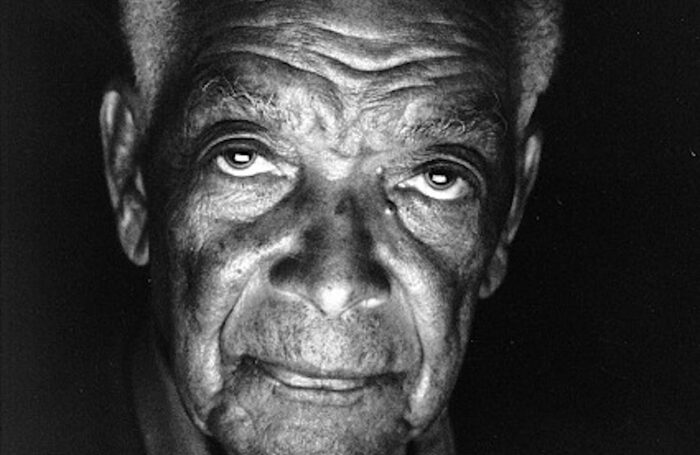Actor
Earlston Jewitt Cameron[ OBE (8 August 1917 – 3 July 2020) was a Bermudian actor who lived and worked in the United Kingdom. After appearing on London’s West End stage, he became one of the first black stars in the British film industry.[5] With his appearance in 1951’s Pool of London, Cameron became one of the first black actors to take up a starring role in a British film after Paul Robeson, Nina Mae McKinney and Elisabeth Welch in the 1930s.
According to Screenonline, “Earl Cameron brought a breath of fresh air to the British film industry’s stuffy depictions of race relations. Often cast as a sensitive outsider, Cameron gave his characters a grace and moral authority that often surpassed the films’ compromised liberal agendas.” He starred alongside Sean Connery in the 007 blockbuster Thunderball (1965). He also had appearances in many 1960s British science fiction programmes, including Doctor Who, The Prisoner, and The Andromeda Breakthrough.[9] His film appearances continued until 2013, when he was in his 90s.
According to Screenonline, “Earl Cameron brought a breath of fresh air to the British film industry’s stuffy depictions of race relations. Often cast as a sensitive outsider, Cameron gave his characters a grace and moral authority that often surpassed the films’ compromised liberal agendas.”[8]
He starred alongside Sean Connery in Thunderball (1965). He made appearances in many 1960s British science fiction programmes, including Doctor Who, where he was reportedly one of the first black actors to play an astronaut on television,[9] The Prisoner, and The Andromeda Breakthrough.[10] His film appearances continued until 2013, when he was 96.[11]

read more @ https://en.wikipedia.org/wiki/Earl_Cameron

Earl Cameron CBE: A Trailblazing Actor from Bermuda
Introduction:
Earl Cameron CBE was a distinguished actor hailing from the picturesque island of Bermuda. Born on August 8, 1917, in Pembroke Parish, Bermuda, he would go on to become a trailblazer in the world of acting, breaking barriers and challenging racial stereotypes throughout his illustrious career. Earl Cameron’s life journey is a testament to talent, perseverance, and the unyielding spirit of a man who paved the way for future generations of Black actors in the film and theater industry.
Early Life and Education:
Earl Cameron was raised in a modest family on the island of Bermuda. His upbringing instilled in him a strong work ethic and a desire to achieve greatness against all odds. After completing his education in Bermuda, he set out for England in 1939, where he initially worked as a dishwasher before enlisting in the British Merchant Navy during World War II.
Theater Beginnings:
Cameron’s interest in acting developed during his time in the British Merchant Navy when he participated in plays and talent shows onboard ships. His natural talent for performing soon caught the attention of a casting agent, leading to his first professional acting role in the stage production of “Chu Chin Chow” in 1942. This marked the beginning of his theatrical journey.
Breaking Racial Barriers:
In post-war England, opportunities for Black actors were limited, but Earl Cameron’s talent transcended racial boundaries. He persevered through the racial prejudices of the time, securing roles in various theater productions and gradually making a name for himself in the British acting scene. His breakthrough came in 1951 when he starred alongside Sydney Poitier in “Pool of London,” a film that marked the first time a Black actor played a leading role in a British mainstream film.
Film and Television Career:
Earl Cameron continued to break barriers in the film industry, with roles in notable productions such as “Sapphire” (1959), “Flame in the Streets” (1961), and “The Interpreter” (2005). His television career also flourished, and he appeared in popular shows like “Doctor Who” and “The Prisoner.” Cameron’s performances were praised for their depth and authenticity, contributing to a more inclusive portrayal of Black characters in British media.
Advocacy and Legacy:
Beyond his acting career, Earl Cameron was a vocal advocate for racial equality and social justice. He used his platform to address issues of racism and discrimination in the entertainment industry, inspiring change and greater inclusivity.
Honors and Recognition:
In recognition of his outstanding contributions to the arts and his advocacy for racial equality, Earl Cameron was appointed Commander of the Order of the British Empire (CBE) in 2009. This prestigious honor underscored his enduring legacy as a pioneer in the field of acting.
Conclusion:
Earl Cameron CBE’s life is a remarkable story of talent, perseverance, and resilience in the face of adversity. He not only achieved success as an actor but also shattered racial barriers, leaving an indelible mark on the world of entertainment. His legacy serves as an inspiration to aspiring actors and stands as a testament to the power of determination and talent in overcoming prejudice and forging a path towards a more inclusive and equitable industry. Earl Cameron will forever be remembered as a true trailblazer and a Bermuda icon who helped shape the future of British cinema and theater.
Bermudian Actors